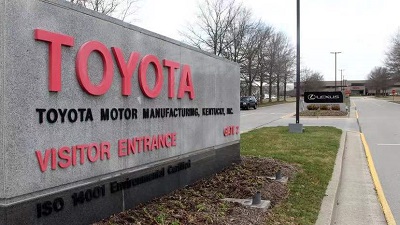Toyota will spend 35 billion U.S. dollars to develop electric vehicles
The company plans to launch 30 electric vehicles by 2030 and sell 3.5 million battery-powered vehicles each year. Toyota said it will invest 35 billion U.S. dollars to switch to electric vehicles.
The world’s largest automaker is preparing to compete directly with Tesla and work with other groups to promote carbon neutrality.
This marked a significant increase in the company’s electric vehicle goals. The company plans to sell 3.5 million battery-powered vehicles annually by 2030, and will launch 30 electric vehicles, including sports cars and commercial vehicles

The company has said in the past that the long-term solution to global warming should be hybrid vehicles, electric vehicles and hydrogen-powered vehicles, rather than betting solely on battery-powered vehicles.
But this kind of attention worries investors, who worry that the group is delaying its electric plan, especially as the technology promotes a sharp rise in Tesla’s market value.
Big shift
Toyota President Akio Toyota said at a press conference: “Until now, I have not been interested in Toyota’s electric cars. But now I am interested in the electric cars of the future.”
Although lagging behind Volkswagen and General Motors, some investors believe that Toyota is now stepping up to achieve its electric vehicle sales targets and it may become very powerful.
Although this figure lags behind Germany’s competitor Volkswagen’s €52 billion electric car promise, it eclipses the $17.7 billion promised by Japanese competitor Nissan when it announced its long-term electric vehicle strategy at the end of November.
This US$35 billion investment will be evenly allocated to continued investment in automotive research and development and battery improvements. This number has also increased significantly compared to the last announcement earlier this year.
The company has previously stated that it will sell 2 million electric and fuel cell vehicles by 2030, and invest 13 billion U.S. dollars in batteries.
Toyoda said that the company’s high-end brand Lexus (Lexus) will be at the forefront of the company’s more active promotion of battery development, and all these models will become pure electric models by 2035.
The company plans to target customers in the United States and China because the brand is very popular in these two countries. Toyota hopes that Lexus customers can switch to electric vehicles earlier than other models.
CLSA analyst Richter said: “Electric vehicles will be very expensive, and now the most suitable for buying electric vehicles are Lexus owners, not Corollas owners.”
Not all in
However, the company did not bet all of its bets on electric vehicles, saying it could not accurately predict the speed of the technology’s development or adoption.
“Toyota can’t decide what menu customers will choose, so we want to expand our range of choices.” Toyota said, “Leave everyone a choice. Once we find the right solution, we will immediately follow. This is our competitiveness and a way to survive.”
Toyota announced earlier this month that the company will only sell cars that emit no carbon dioxide in Western Europe from 2035.
But this is based on the assumption that by then, Europe will have sufficient renewable energy production capacity and infrastructure for charging and hydrogen fuel supply. Europe accounts for approximately 10% of Toyota’s global sales.



